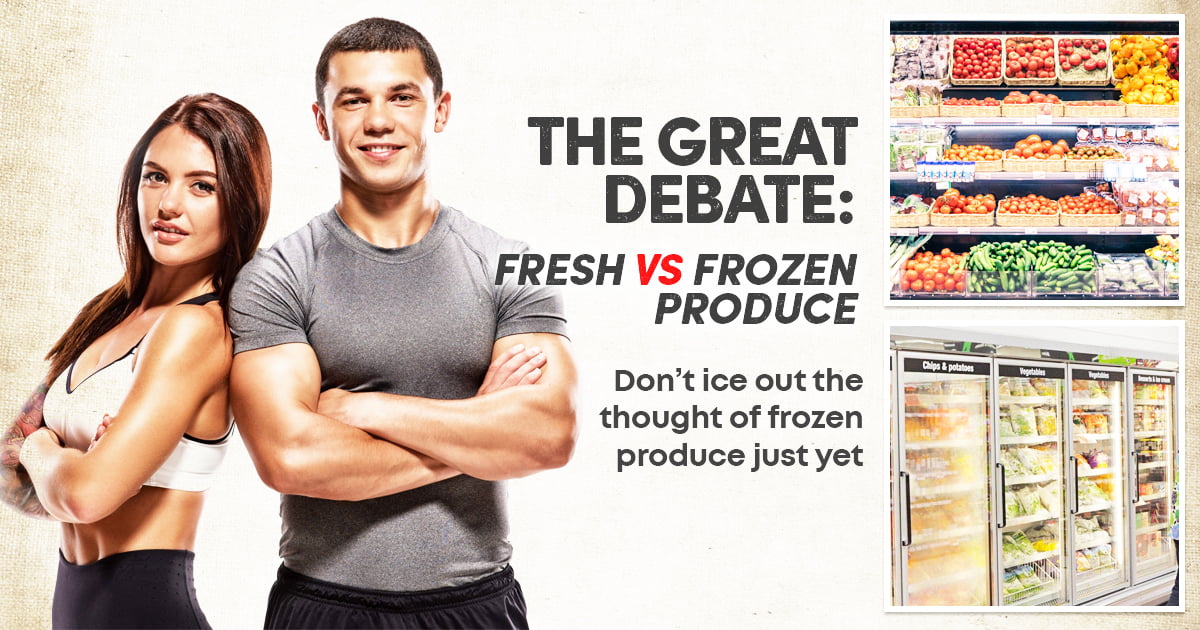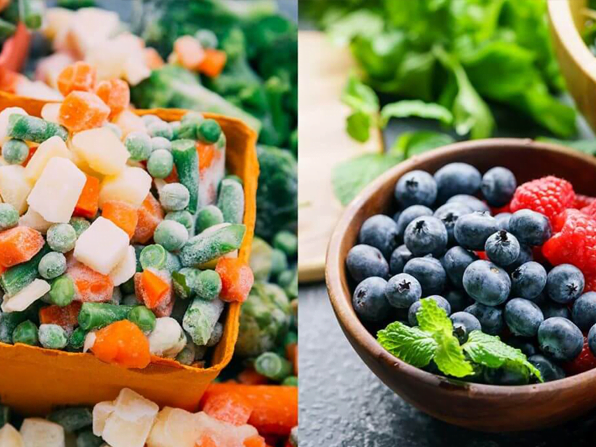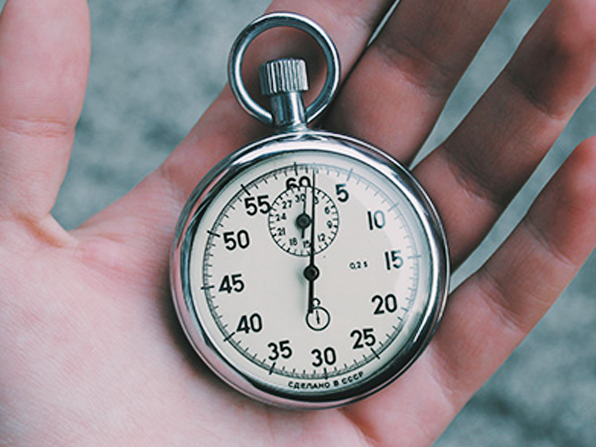
Don’t ice out the thought of frozen produce just yet
Do you always opt for fresh fruits and vegetables over frozen? You might want to rethink that decision to maximize the nutrients you take in.
While many people assume that fresh fruits and veggies contain more nutritional value than their frozen counterparts, that's not always true. For instance, a recent study by the University of California showed that vegetables can lose between 15 to 55 percent of vitamin C within a week. And some spinach varieties can lose 90 percent of their nutritional value within the first 24 hours after harvest.[1]
When foods are properly frozen within hours of being picked, they can actually retain more nutrients than their fresh varieties. Flash-frozen fruits and vegetables are often deemed the healthiest and retain the highest nutritional value, as they avoid the natural breakdown and decay that fresh produce experiences.[2]
While most of your fresh produce will only be good for about a week or two once you get it home from the store, frozen produce can last much longer and keep its nutritional value for months or even up to a year when stored correctly in your freezer.
And when you're ready to enjoy your frozen produce, your best bet is to thaw it safely. Experts recommend placing your products in the fridge to thaw for the best results, though defrosting in water or in the microwave are also options.
If you’re ready to put your nutrition on ice, keep reading to learn about which produce options are better to buy frozen to max out your nutritional intake.
Corn on the Cob
This quintessential food of summer and family picnics is an excellent option to buy frozen. Packed with fiber, antioxidants, B vitamins, and carotenoids that protect your sight, corn on the cob is one item you'll want to add to your freezer. It's great to enjoy it as a side or by cutting the kernels off the cob and mixing it in your salads.
Blueberries
Unless you’re picking your blueberries right from the farm or getting them while they’re in season, opting for the frozen variety is often the better choice. You’ll get a much better quality and tasting berry that packs all the nutritional punch as the fresh variety, like helping your body boost its cancer-fighting capabilities. Adding frozen blueberries to a homemade shake can be great to consume post-workout, just add almond milk, natural peanut butter, a banana and frozen blueberries in a blender. If you’re looking for a meal replacement, you can also add oats and a scoop of your favorite protein powder.
Broccoli
Broccoli is a must-have in a healthy diet thanks to its many nutritional benefits. Known for lowering cholesterol, detoxing your body, boosting fiber, fighting inflammation, and aiding in digestion, broccoli is a nutritional wonder and great in its frozen form. Frozen broccoli retains its bright color, unlike its fresh variety, which can quickly wilt and lose its color—and nutritional benefits.
Spinach
While you'll want to opt for fresh spinach for your salads, frozen spinach is an excellent option for your cooked dishes. While fresh spinach can lose up to 90% of its nutritional value in days, frozen spinach loses up to only 30% of its nutritional value after a year in the freezer.[3] Maximize the many antioxidant and anti-inflammatory properties of this superfood by working more frozen spinach into your diet.
While these are just a few foods you should consider buying frozen to optimize your body’s nutritional intake and fend against deficiencies, adding in supplements to balance out your body is also a great option.
We also recommend checking out our Ultimate Weight Loss Stack for a rock-solid foundation for improved overall health, immunity, and metabolic function to maximize your results!
Regardless of your fitness goals, whether it’s building lean muscle mass or fat loss, or both, when your body can’t function optimally, your results will be hindered. The Elite Essentials Stack includes all the nutrients, minerals, extracts, probiotics, proteins and vitamins needed for a rock-solid foundation to maximize your health, mood, performance and weight loss!
[1] Feng, Monica. (2013, July 10). Most produce loses 30 percent of nutrients three days after harvest. Chicago Tribune. Link
[2] Williams, Vivien. (2019, November 20). Mayo Clinic Minute: Benefits of Flash-Frozen Produce. Mayo Clinic News Network. Link



